As the year 2021 draws to a close and we celebrate the season through Christmas and Kwanzaa, we would like to pause and give praise and honor to those Pan-Afrikan giants we have seen pass on to the Honored Ancestors in December.
We commemorated the transition of Rev. Richard Meri Ka Ra Byrd of KRST Unity Center of Afrakan Spiritual Science (December 5) in this article. Here, we recognize four others who passed on to the Ancestors in December: Organizer and Teacher Babatunji Balogun (Soul School Institute, Baltimore, Maryland, December 15), Author bell hooks (December 15), Political Prisoner Russell “Maroon” Shoatz (December 17) and South African Anti-Apartheid Activist and Anglican Archbishop Desmond Tutu (December 26).
Baltimore-Area Activist, Leader and Teacher Babatunji Balogun, December 15, 2021
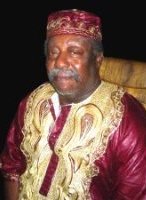 Though I was not a member of the Soul School Institute, the organization he founded, I have many fond memories of Babatunji. From his brief time with an earlier version of the Council of Elders in Maryland (2009) to my attendance on his annual bus tour to commemorate the birthday of Ancestor Malcolm X which visited several points of interest in New York, including Ferncliff Cemetery and a historic eatery where Minister Malcolm often dined, Babatunji was always ready to teach, talk to and encourage us. His passing to the Honored Ancestors on December 15 came as a shock to many of us.
Though I was not a member of the Soul School Institute, the organization he founded, I have many fond memories of Babatunji. From his brief time with an earlier version of the Council of Elders in Maryland (2009) to my attendance on his annual bus tour to commemorate the birthday of Ancestor Malcolm X which visited several points of interest in New York, including Ferncliff Cemetery and a historic eatery where Minister Malcolm often dined, Babatunji was always ready to teach, talk to and encourage us. His passing to the Honored Ancestors on December 15 came as a shock to many of us.
The following information comes from the blog of the Soul School Institute, https://thesoulschool.blogspot.com/2012/04/this-is-soul-school-institute.html:
This is the Soul School Institute (dated Tuesday, July 3, 2012)
Origin of the Soul School Institute
The Soul School Institute was established in May 1992. It is the successor to the S.O.U.L School which existed from March 1968 until 1973 when it was forced to close its doors. However, the Soul School Institute embodies the ideology of the original Soul School, which is Revolutionary Black Nationalism. The Soul School Institute takes its ideology from the teachings and legacy of the Rt. Excellent Hon. Marcus Mosiah Garvey and El Hadj Malik el Shabazz, popularly known as Malcolm X.
Program of the Soul School Institute
The program of the Soul School Institute is to train organizers to implement a program of Black Nationalist reconstruction of the African-American communities. This entails education and projects designed to have African people work in unity.
Current program of the Soul School Institute
Our current work consists of educational and cultural tours:
Malcolm X Tour–A Tour given each year on Malcolm X’s birthday (May 19) to New York to celebrate and honor the work that he did on behalf our race.
ODUNDE–A cultural trip to Philadelphia to participate in one of the largest African-centered street festivals in America. ODUNDE, which means Happy New Year in the West African language of Yoruba presents an opportunity to immerse ourselves in African culture.
Nat Turner Tour–This is our most recent tour. It is a trip to Southampton, Virginia, scene of one of the most bloody slave revolts in American history. Nat Turner and his small army of fighters struck against the slave system on August 21, 1831. Killing 55 white slave owners and their families. The Tour retraces the steps that Nat Turner took in his march toward freedom.
We Shall Reap What We Sow–This is our organic gardening program. We endeavor to teach the basics on growing food, storing food, and cooking organically. We are also determined to explain and promote healthy eating habits and to expose the dangers of processed food that comes from a factory not from a farm.
African Media Workshop–The Soul School Institute publishes the Positive Action Bulletin and the African Historian Reference Calendar.
We are not sure what the future holds for the programs of the Soul School Institute now that Babatunji has left this earthly plane. We can only hope that others will successfully take up the mantle he has left us. Aside from the work he did through Soul School Institute and its quarterly newsletter, Positive Action Bulletin, we will all miss his easygoing manner, his commitment to his people, his warm welcome and manner, and most of all, his wisdom.
Author and Academic bell hooks, December 15, 2021
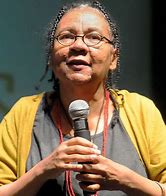 Author bell hooks, who was born Gloria Jean Watkins but chose the pen-name bell hooks, which she borrowed from her grandmother, Bell Blair Hooks, and always wrote in lowercase to emphasize her ideas over her identity, passed on to the Honored Ancestors on December 15. Wikipedia described her thus (https://en.wikipedia.org/wiki/Bell_hooks):
Author bell hooks, who was born Gloria Jean Watkins but chose the pen-name bell hooks, which she borrowed from her grandmother, Bell Blair Hooks, and always wrote in lowercase to emphasize her ideas over her identity, passed on to the Honored Ancestors on December 15. Wikipedia described her thus (https://en.wikipedia.org/wiki/Bell_hooks):
Gloria Jean Watkins (September 25, 1952 – December 15, 2021), better known by her pen name bell hooks, was an American author, professor, feminist, and social activist. The name “bell hooks” is borrowed from her maternal great-grandmother, Bell Blair Hooks.
The focus of hooks’s writing was the intersectionality of race, capitalism, and gender, and what she described as their ability to produce and perpetuate systems of oppression and class domination. She published more than 30 books and numerous scholarly articles, appeared in documentary films, and participated in public lectures. Her work addressed race, class, gender, art, history, sexuality, mass media, and feminism.
Also an academic, she taught at institutions including Stanford University, Yale University, and The City College of New York, before joining Berea College in Berea, Kentucky, in 2004, where a decade later she founded the bell hooks Institute.
Noliwe Rooks wrote in a tribute to her on December 27 for Politico (bell hooks: The Author Who Challenged the Norms of Academia, https://www.msn.com/en-us/entertainment/news/bell-hooks-the-author-who-challenged-the-norms-of-academia/ar-AASaUFx?ocid=uxbndlbing) about how she was inspired and led by her personal interactions with Ms. hooks and about the impact Ms. hooks’ academic activism had on academia as a whole:
“… how she moved through academic institutions demanding respect, but not expecting love. She showed women and Black people, including Black women academics like me, that there is a price to pay for believing that the goal and meaning of Black freedom is bound up with learning to survive easy digestion in the “belly” of various institutional “beasts.” Her life offers something of a parable about how difficult it is for professors like us — no matter how brilliant, brave, irreverent, iconoclastic, charming, committed or popular we are — to remain in institutions built on the structural foundations of patriarchy, racism, capitalism and misogyny, especially when we, and our scholarship, are there to dismantle those very things. …
“Because of bell hooks, we know we can bring our whole selves to our work. We can trust and believe in our intellect. We can be complicated in our humanity. We can be gentle with our critiques. We can be fierce in our protection. We can keep talking to, and talking with, and talking back, until the last breath.”
Yahoo also has presented an article detailing the numerous tributes that have come forth to celebrate the life and legacy of bell hooks (https://www.yahoo.com/now/people-sharing-beautiful-lessons-tributes-044602205.html).
Political Prisoner Russell “Maroon” Shoatz, December 17, 2021
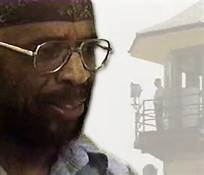 On December 17, the Pan-Afrikanist, Black Nationalist and Revolutionary Activist communities mourned the passing of longtime Political Prisoner Russell “Maroon” Shoatz. He was an active member of the Black Panther Party in Philadelphia as then-police chief Frank Rizzo was directing a vicious campaign to stamp out the BPP and other “militant” groups in the summer of 1970. He had been captured, tried, convicted and sentenced to life in prison for a retaliatory attack on a police station in Philadelphia in September 1970 that killed a police officer, Frank Von Coln. He would earn the nickname “Maroon” because of his several escapes from prison. He had been given medical parole and compassionate release from his prison sentence when it was determined that his cancer was terminal so that he could transition to the Ancestors at home with his family. A brief bio is available at the Web site of Prisoner Solidarity, https://prisonersolidarity.com/prisoner/maroon-shoatz:
On December 17, the Pan-Afrikanist, Black Nationalist and Revolutionary Activist communities mourned the passing of longtime Political Prisoner Russell “Maroon” Shoatz. He was an active member of the Black Panther Party in Philadelphia as then-police chief Frank Rizzo was directing a vicious campaign to stamp out the BPP and other “militant” groups in the summer of 1970. He had been captured, tried, convicted and sentenced to life in prison for a retaliatory attack on a police station in Philadelphia in September 1970 that killed a police officer, Frank Von Coln. He would earn the nickname “Maroon” because of his several escapes from prison. He had been given medical parole and compassionate release from his prison sentence when it was determined that his cancer was terminal so that he could transition to the Ancestors at home with his family. A brief bio is available at the Web site of Prisoner Solidarity, https://prisonersolidarity.com/prisoner/maroon-shoatz:
Russell “Maroon” Shoatz
Russell Maroon Shoatz is a dedicated community activist, founding member of the Black Unity Council, former member of the Black Panther Party and soldier in the Black Liberation Army. He is serving multiple life sentences as a US-held political prisoner/prisoner of war.
Personal Background
Russell was born August 1943 in Philadelphia. He was one of 12 children. At the age of 15 he became involved in a gang, and was in and out of reform schools and youth institutions until the age of 18.
As a young man, he married twice and became the father of seven children. In the mid 1960s, Russell started becoming active in the New Afrikan liberation movement. He founded the Black Unity Council, which merged with the Philadelphia Chapter of the Black Panther Party in 1969.
Tensions were high in Philadelphia in the summer of 1970 because Philadelphia Police Chief Frank Rizzo had ordered a crackdown on militant groups in the run-up to the national convention of the Black Panther Party in Philadelphia on September 5, 1970. These tensions intensified when police killed a black youth in Philadelphia. A retaliatory attack was carried out on a police station, killing officer Frank Von Coln and injuring one other.
The shooting of Von Coln prompted a 2 a.m. raid on the Black Panther headquarters in North Philadelphia. After the raid, police officials allowed news photographers to take humiliating photos of the Black Panthers being strip searched on the street.
Russell and four others (who became known as the “Philly Five”) were immediately charged with the attack. They went underground and continued to struggle for New Afrikan self-determination as part of the Black Liberation Army.
Legal Case
In January of 1972 Russell was captured. He was convicted of the attack on the police station and sentenced to life.
1977 Prison Escape
Russell escaped with three others from Huntingdon State Prison in 1977. Two were recaptured and the third was killed during the escape. Russell remained at large for 27 days, leading to a massive manhunt by local, state and federal forces, as well as citizen recruits from nearby white, rural areas.
From his capture in 1977 until 1989 Russell was shipped from state, county and federal prisons, kept in long term solitary confinement the entire time. In 1979 he was forcibly transferred to the Fairview State Hospital for the Criminally Insane. While at Fairview he was forcibly drugged, which in one case led to him being hospitalized when he was overdosed.
1980 Prison Escape
In March of 1980 he escaped prison with a fellow revolutionary after a New Afrikan activist smuggled a revolver and sub-machine gun into the institution. Three days later all three were captured after a gun battle with local, state and county police, and FBI agents.
Camp Hill Prison Riot
In 1989, Pennsylvania prison Camp Hill erupted in a riot because of overcrowding and inhumane conditions. Despite being held in a Dallas prison and having nothing to do with the incident, Russell was implicated in it and as a result was transferred to the notorious Marion Supermax prison over 1,000 miles from friends, family and supporters.
Supporters fought to have Russell removed from solitary confinement in Marion and released into general population. They were finally successful in December of 1989, when Maroon was released into the general prison population in Leavenworth, Kansas.
Russell Returns to Solitary Confinement
Unfortunately Russell was placed back into long term solitary confinement in 1991 at SCI Greene in Waynesburg, PA. It was only after a lawsuit was filed in May 2013 that in February of 2014, Russell was released from solitary confinement after roughly 22 consecutive years.
Health in Prison
In August 2019, he was transferred to the medical facility at Fayette for treatment of stage 4 colorectal cancer. Due to lack of proper medical care in the DOC, a judge granted him medical parole in October 2021.
Baba Russell “Maroon” Shoatz’ family has fought for his release as a Political Prisoner and on medical grounds for decades and are usually represented at Philadelphia-area rallies for MOVE, Mumia Abu-Jamal and other Political Prisoners. We are saddened to hear of his passing, but we are heartened that he was able to make his transition at home, surrounded by those he loved and who love him.
South African Anti-Apartheid Activist and Anglican Archbishop Desmond Tutu, December 26, 2021
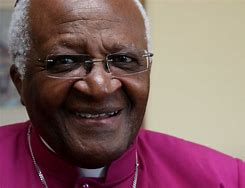 This comes from an article on the NBC News Web site, https://www.nbcnews.com/news/world/archbishop-desmond-tutu-south-african-anti-apartheid-leader-dies-90-rcna9971:
This comes from an article on the NBC News Web site, https://www.nbcnews.com/news/world/archbishop-desmond-tutu-south-african-anti-apartheid-leader-dies-90-rcna9971:
Archbishop Desmond Tutu, South African anti-apartheid leader, dies at 90
Dec. 26, 2021, 2:18 AM EST / Updated Dec. 27, 2021, 4:53 PM EST
By Max Burman and Doha Madani
Archbishop Desmond Tutu, who helped lead the movement that ended the brutal regime of white minority rule in South Africa, has died at age 90, the country’s president confirmed Sunday.
“The passing of Archbishop Emeritus Desmond Tutu is another chapter of bereavement in our nation’s farewell to a generation of outstanding South Africans who have bequeathed us a liberated South Africa,” President Cyril Ramaphosa said in a statement early Sunday.
“Desmond Tutu was a patriot without equal; a leader of principle and pragmatism who gave meaning to the biblical insight that faith without works is dead.”
Tutu gained prominence through his work as a human rights campaigner. In 1984, he was awarded the Nobel Peace Prize for his tireless and nonviolent fight against apartheid in South Africa, and he later played a key role in downfall of the segregationist policy.
Tutu was diagnosed with prostate cancer in the late 1990s and was hospitalized several times in recent years to treat infections associated with his treatment.
“Ultimately, at the age of 90, he died peacefully at the Oasis Frail Care Centre in Cape Town this morning,” Dr. Ramphela Mamphele said in a statement on behalf of the family.
She did not give details of the cause of death.
Tutu, an Anglican clergyman, used the pulpit to preach and galvanize public opinion against the injustice faced by South Africa’s Black majority.
Tutu, the first Black bishop of Johannesburg and later the first Black archbishop of Cape Town, was a vocal activist for racial justice and LGBTQ rights not just in South Africa but around the world.
In 1990, after 27 years in prison, Nelson Mandela spent his first night of freedom at Tutu’s residence in Cape Town.
After the fall of the apartheid regime, with Mandela leading the country as its first Black president, Tutu headed the Truth and Reconciliation Commission, which laid bare the terrible truths of white rule.
“His contributions to struggles against injustice, locally and globally, are matched only by the depth of his thinking about the making of liberatory futures for human societies,” the Nelson Mandela Foundation said in a statement.
Tributes poured in from around the world.
Tutu’s legacy surpasses borders and “will echo throughout the ages,” U.S. President Joe Biden said in a statement Sunday.
“We were blessed to spend time with him on several occasions over the past many years,” Biden said on behalf of himself and his wife, Jill. “His courage and moral clarity helped inspire our commitment to change American policy toward the repressive Apartheid regime in South Africa.”
Biden was outspoken about apartheid when he traveled to the country as a senator in 1976, when he said he refused to be separated from his Black colleagues. A clip of him arguing against apartheid in a Senate hearing in 1986 resurfaced during this 2020 presidential campaign.
We hope we will not need to make addenda to this December 2021 Ancestors’ Call. The last two years have been trying for so many around the world, and for the Pan-Afrikan community in particular, with the disproportionate impact of COVID, the twin scourges of police brutality and the brutality we inflict upon ourselves, and the increased stress that all of these conditions bring. We wish all of you a safe and healthy holiday season, blessed and guided by the Creator and the Ancestors.
Like this:
Like Loading...
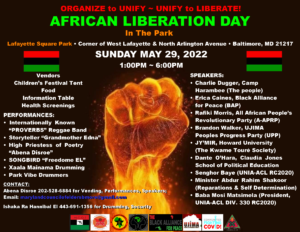 The Maryland Council of Elders (MCOE), All-African People’s Revolutionary Party (A-APRP), All African Women’s Revolutionary Union (A-AWRU), Ujima People’s Progress Party (UPP), Black Alliance for Peace (BAP), Woodson Banneker Bey Division 330 of the UNIA-ACL RC2020 and Pan-Afrikan activists from across the Maryland-Washington, DC area will converge on Lafayette Square Park in West Baltimore (West Lafayette and North Arlington Avenues) for an observance of African Liberation Day on Sunday, May 29 from 1:00 – 6:00 PM.
The Maryland Council of Elders (MCOE), All-African People’s Revolutionary Party (A-APRP), All African Women’s Revolutionary Union (A-AWRU), Ujima People’s Progress Party (UPP), Black Alliance for Peace (BAP), Woodson Banneker Bey Division 330 of the UNIA-ACL RC2020 and Pan-Afrikan activists from across the Maryland-Washington, DC area will converge on Lafayette Square Park in West Baltimore (West Lafayette and North Arlington Avenues) for an observance of African Liberation Day on Sunday, May 29 from 1:00 – 6:00 PM.

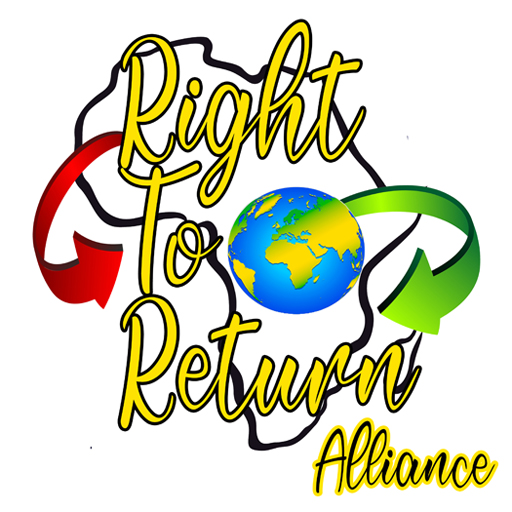

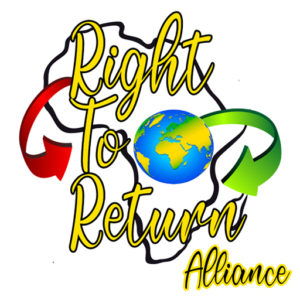 PRESS CONFERENCE DETAILS:
PRESS CONFERENCE DETAILS: 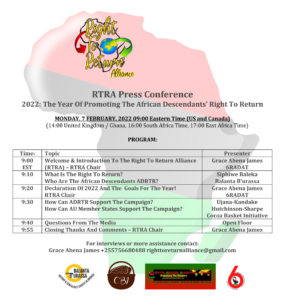

 Sehwah-Liberia, Inc. and the Sixth Region Diaspora Caucus (SRDC) are announcing the
Sehwah-Liberia, Inc. and the Sixth Region Diaspora Caucus (SRDC) are announcing the 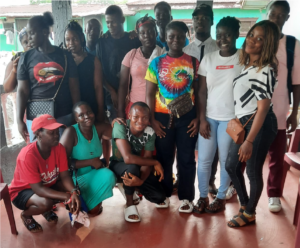
 Though I was not a member of the Soul School Institute, the organization he founded, I have many fond memories of Babatunji. From his brief time with an earlier version of the Council of Elders in Maryland (2009) to my attendance on his annual bus tour to commemorate the birthday of Ancestor Malcolm X which visited several points of interest in New York, including Ferncliff Cemetery and a historic eatery where Minister Malcolm often dined, Babatunji was always ready to teach, talk to and encourage us. His passing to the Honored Ancestors on December 15 came as a shock to many of us.
Though I was not a member of the Soul School Institute, the organization he founded, I have many fond memories of Babatunji. From his brief time with an earlier version of the Council of Elders in Maryland (2009) to my attendance on his annual bus tour to commemorate the birthday of Ancestor Malcolm X which visited several points of interest in New York, including Ferncliff Cemetery and a historic eatery where Minister Malcolm often dined, Babatunji was always ready to teach, talk to and encourage us. His passing to the Honored Ancestors on December 15 came as a shock to many of us.  Author bell hooks, who was born Gloria Jean Watkins but chose the pen-name bell hooks, which she borrowed from her grandmother, Bell Blair Hooks, and always wrote in lowercase to emphasize her ideas over her identity, passed on to the Honored Ancestors on December 15. Wikipedia described her thus (
Author bell hooks, who was born Gloria Jean Watkins but chose the pen-name bell hooks, which she borrowed from her grandmother, Bell Blair Hooks, and always wrote in lowercase to emphasize her ideas over her identity, passed on to the Honored Ancestors on December 15. Wikipedia described her thus ( On December 17, the Pan-Afrikanist, Black Nationalist and Revolutionary Activist communities mourned the passing of longtime Political Prisoner Russell “Maroon” Shoatz. He was an active member of the Black Panther Party in Philadelphia as then-police chief Frank Rizzo was directing a vicious campaign to stamp out the BPP and other “militant” groups in the summer of 1970. He had been captured, tried, convicted and sentenced to life in prison for a retaliatory attack on a police station in Philadelphia in September 1970 that killed a police officer, Frank Von Coln. He would earn the nickname “Maroon” because of his several escapes from prison. He had been given medical parole and compassionate release from his prison sentence when it was determined that his cancer was terminal so that he could transition to the Ancestors at home with his family. A brief bio is available at the Web site of Prisoner Solidarity,
On December 17, the Pan-Afrikanist, Black Nationalist and Revolutionary Activist communities mourned the passing of longtime Political Prisoner Russell “Maroon” Shoatz. He was an active member of the Black Panther Party in Philadelphia as then-police chief Frank Rizzo was directing a vicious campaign to stamp out the BPP and other “militant” groups in the summer of 1970. He had been captured, tried, convicted and sentenced to life in prison for a retaliatory attack on a police station in Philadelphia in September 1970 that killed a police officer, Frank Von Coln. He would earn the nickname “Maroon” because of his several escapes from prison. He had been given medical parole and compassionate release from his prison sentence when it was determined that his cancer was terminal so that he could transition to the Ancestors at home with his family. A brief bio is available at the Web site of Prisoner Solidarity,  This comes from an article on the NBC News Web site,
This comes from an article on the NBC News Web site, 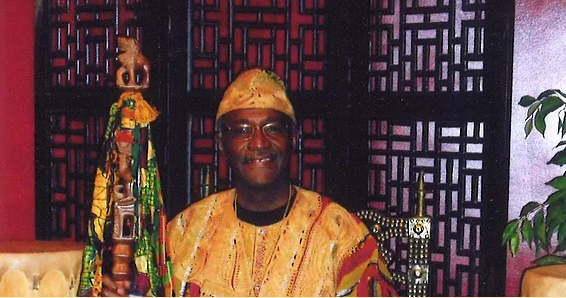
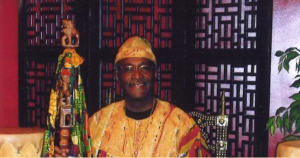 In August of 2013, the Sixth Region Diaspora Caucus (SRDC) held its annual International Summit in Los Angeles, California. Every Summit includes at least one event or gathering that underscores the cultural and spiritual essence of Pan-Afrikan organizing, a reminder of exactly what we all are struggling against our oppressors to protect and build. In 2013, that event was held at the KRST Unity Center of Afrakan Spiritual Science. The event included video presentations, musical performances, guest speakers and exchanges with the audience. Personally, it was my first and, so far, only visit to KRST, but the impact I felt from that one visit was deep and lasting. That spirit can largely be traced to the leadership of Rev. Richard Meri Ka Ra Byrd, the Senior Minister of KRST. He has now been called by the Ancestors to the realm of the infinite, to minister to our community from the other side.
In August of 2013, the Sixth Region Diaspora Caucus (SRDC) held its annual International Summit in Los Angeles, California. Every Summit includes at least one event or gathering that underscores the cultural and spiritual essence of Pan-Afrikan organizing, a reminder of exactly what we all are struggling against our oppressors to protect and build. In 2013, that event was held at the KRST Unity Center of Afrakan Spiritual Science. The event included video presentations, musical performances, guest speakers and exchanges with the audience. Personally, it was my first and, so far, only visit to KRST, but the impact I felt from that one visit was deep and lasting. That spirit can largely be traced to the leadership of Rev. Richard Meri Ka Ra Byrd, the Senior Minister of KRST. He has now been called by the Ancestors to the realm of the infinite, to minister to our community from the other side.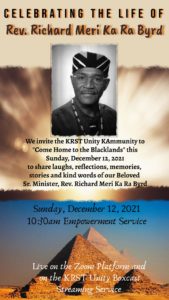 With heavy hearts the Board of Directors of KRST Unity Center of Afrakan Spiritual Science and the Ministerial Staff announce the transition of our beloved Senior Minister, Reverend Richard Meri Ka Ra Byrd into the Ancestral Realm on Sunday, December 5, 2021.
With heavy hearts the Board of Directors of KRST Unity Center of Afrakan Spiritual Science and the Ministerial Staff announce the transition of our beloved Senior Minister, Reverend Richard Meri Ka Ra Byrd into the Ancestral Realm on Sunday, December 5, 2021.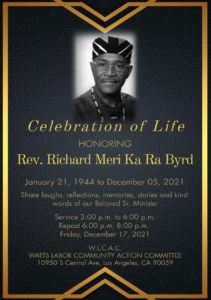 A Celebration of Life for Rev. Richard Meri Ka RA Byrd
A Celebration of Life for Rev. Richard Meri Ka RA Byrd

 The Pan African Global Trade and Investment Conference, which had been announced on this Web site for January 14-16, 2022, has been postponed.
The Pan African Global Trade and Investment Conference, which had been announced on this Web site for January 14-16, 2022, has been postponed.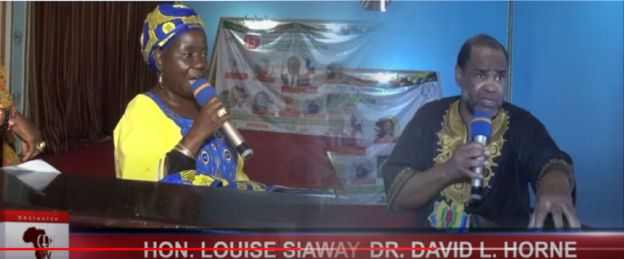
 The week leading up to the traditional Thanksgiving holiday served up a mixed buffet to those who abhor racism, White supremacy and wanton vigilantism and who have cried out for justice against these scourges on society.
The week leading up to the traditional Thanksgiving holiday served up a mixed buffet to those who abhor racism, White supremacy and wanton vigilantism and who have cried out for justice against these scourges on society.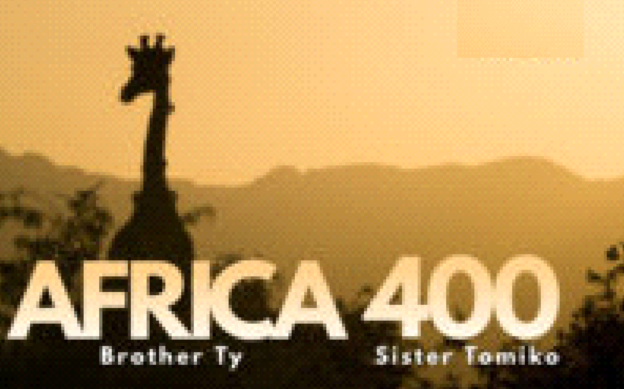
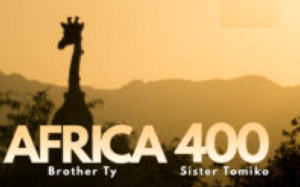 Africa400, the weekly Pan-Afrikan radio show hosted by Mama Tomiko and Baba Ty, with Special Episodes guest-hosted by Grandmother Walks On Water (“Mothership”) and Baba Francois Ndengwe (“Fresh News From Africa”), is taking a break from broadcasting as they make plans for the coming year.
Africa400, the weekly Pan-Afrikan radio show hosted by Mama Tomiko and Baba Ty, with Special Episodes guest-hosted by Grandmother Walks On Water (“Mothership”) and Baba Francois Ndengwe (“Fresh News From Africa”), is taking a break from broadcasting as they make plans for the coming year.